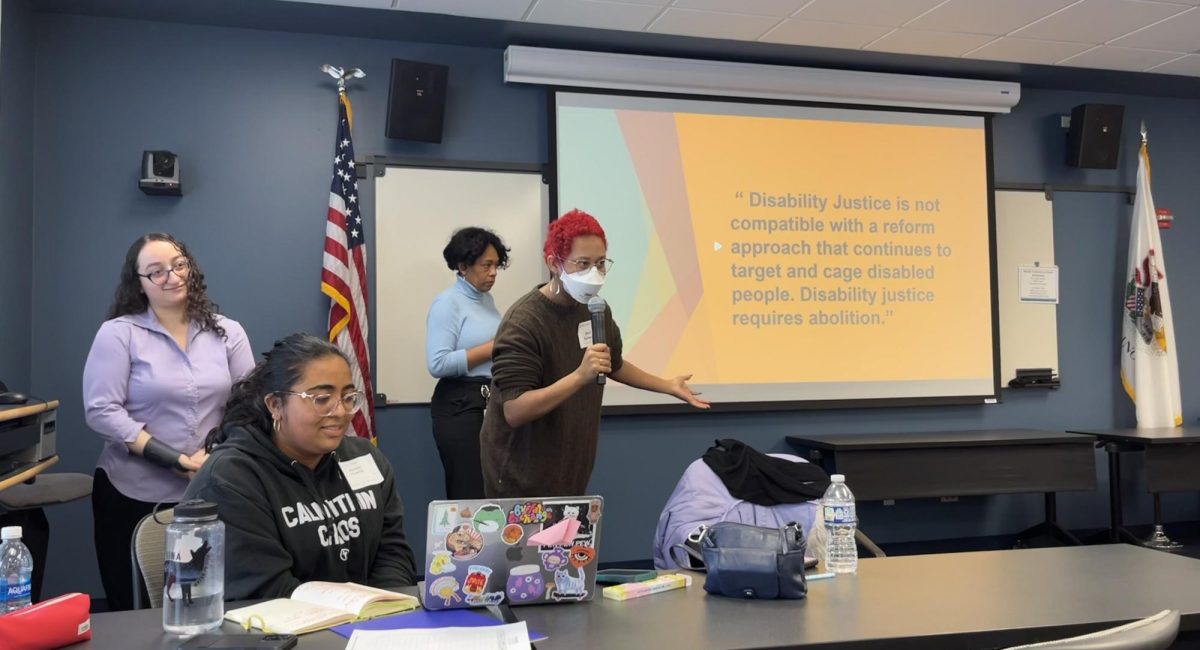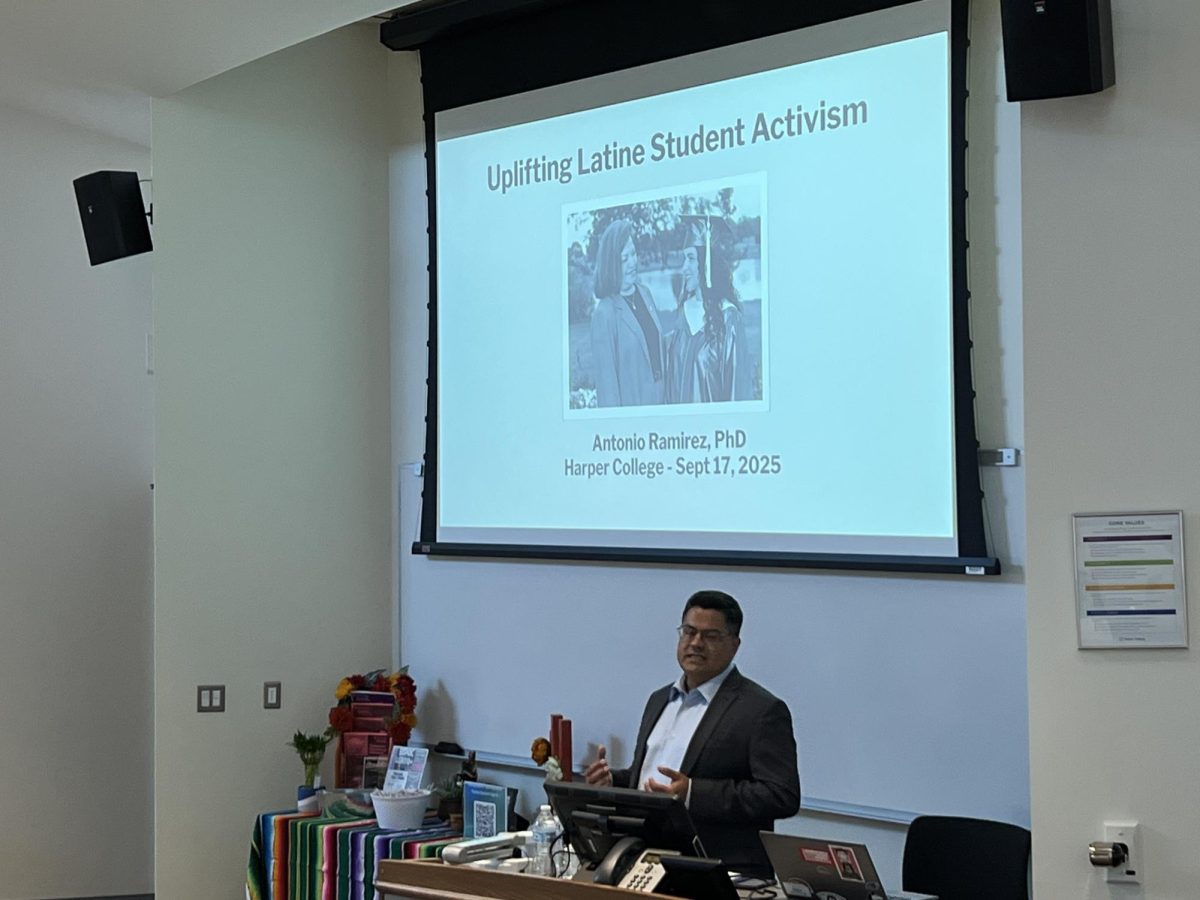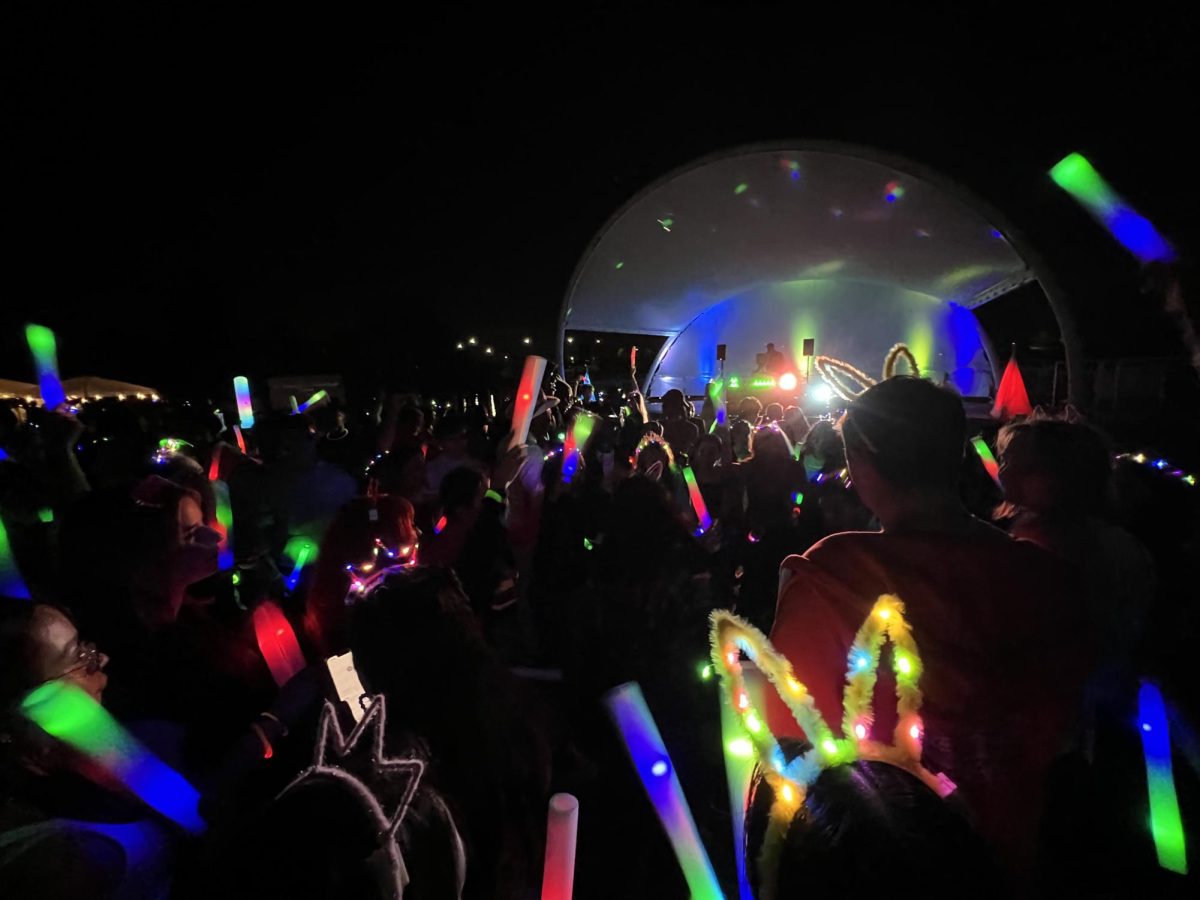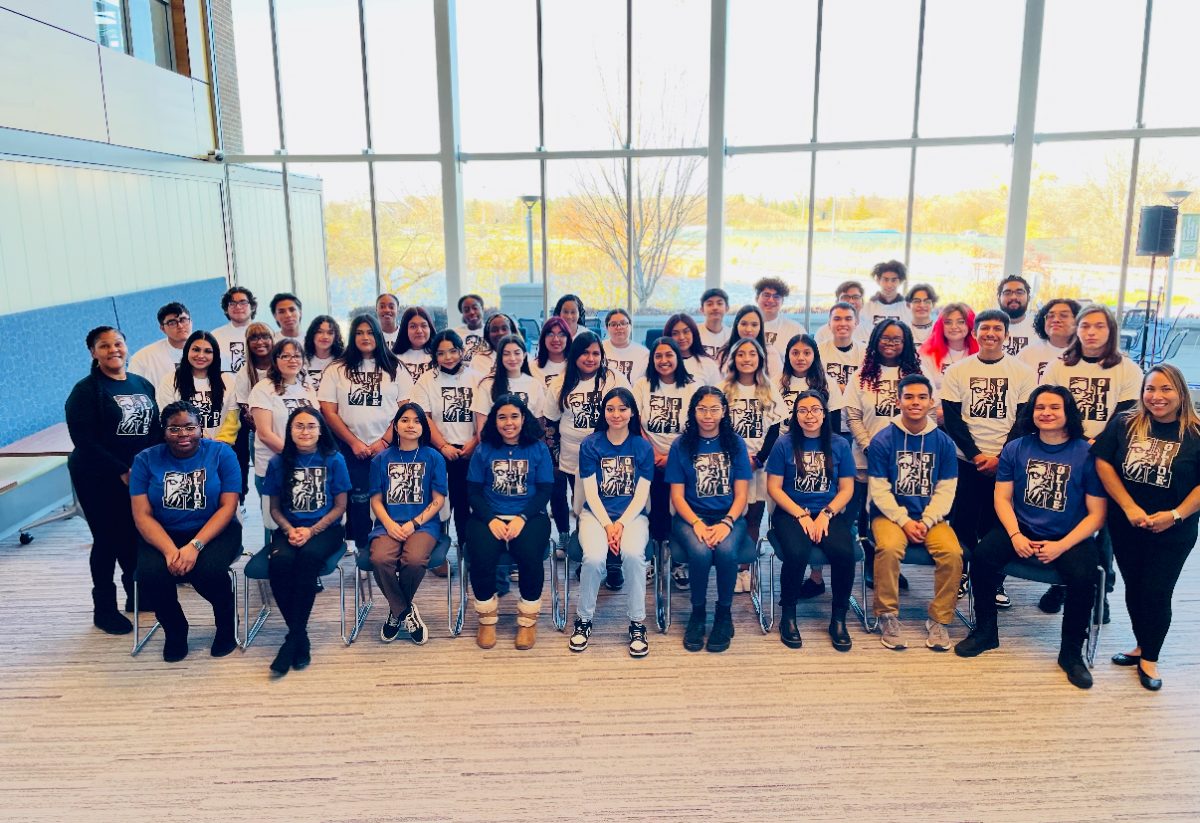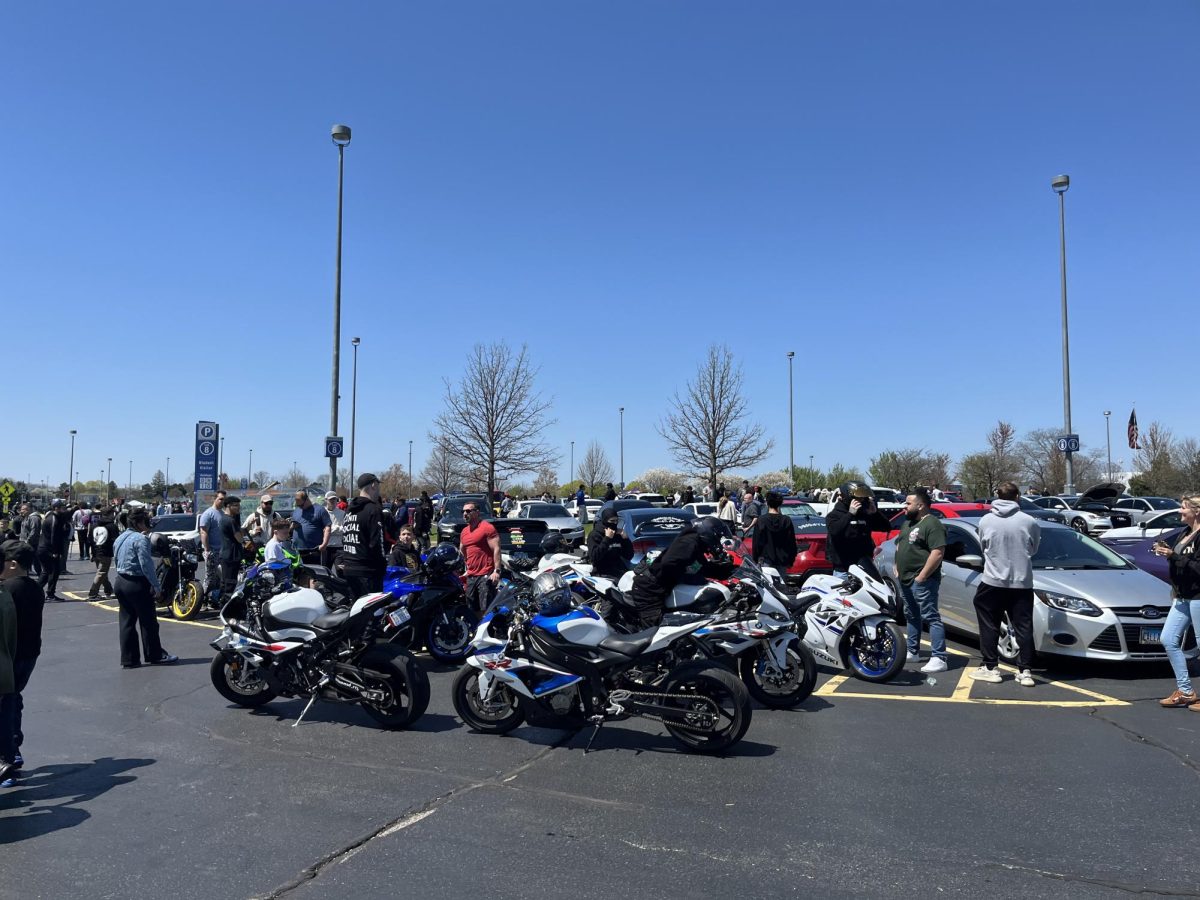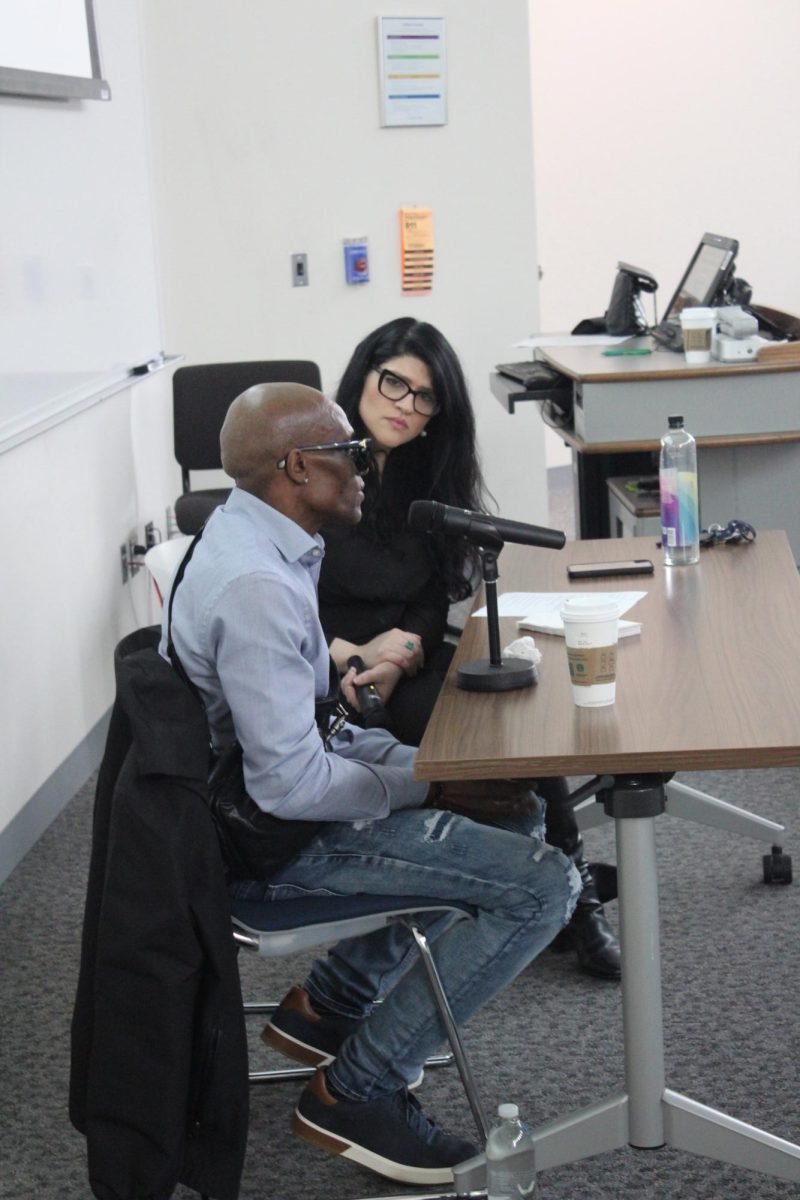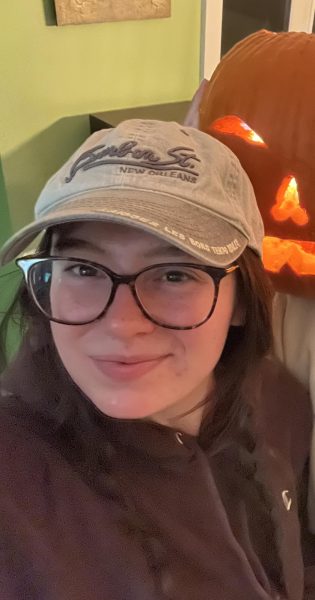Nearly 100 faculty, staff and students gathered for The Universal Village: Designing for Mental Health and Neurodiverse Access on March 7th, as the symposium made a popular return from its inaugural year last year.
The event consisted of a keynote presentation followed by six breakout sessions over the course of two time slots, from 8:30am until 2:30pm.
Participants were mostly faculty, staff and students with notably low participation from Harper’s administration–with only Harper president, Dr. Proctor, who made a brief appearance and statement after the keynote.
Keynote Speaker: Dr. Maureen Dunne
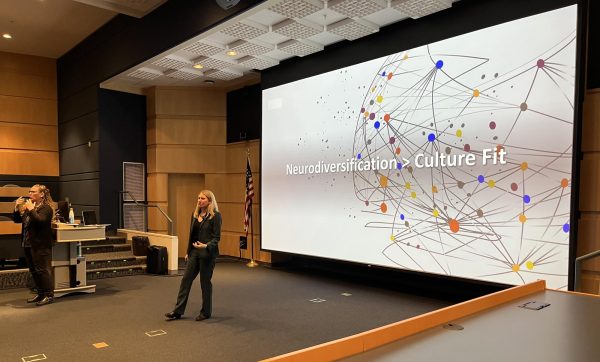
The day kicked off with a presentation by Dr. Maureen Dunne, author of The Neurodiversity Edge: The Essential Guide to Embracing Autism, ADHD, Dyslexia, and Other Neurological Differences for Any Organization.
Dr. Dunne stressed that at large, our current organizational systems do not accommodate neurodiverse individuals, having consequences on their mental health by forcing people to function in systems that do not serve them.
She urged to construct systems intended with “Universal Design,” which value contribution from all individuals by bridging empathy and communication gaps.
According to Dr. Dunne, over 50% of Generation Z is identifying with neurodiversity.
She stated that Universal Design would serve to support, elevate, and value neurodiverse individuals by creating environments they can thrive in.
Panel on Disability Justice and Abolition
Students from Harper’s Amnesty International and Pride clubs hosted a workshop on disability justice and abolition that focused on how disability rights differs from disability justice, and challenged educators and employees to see how these concepts can be applied in their work.
The presentation attracted approximately 20 attendees, and was regarded as one of the most impactful sessions of the day.
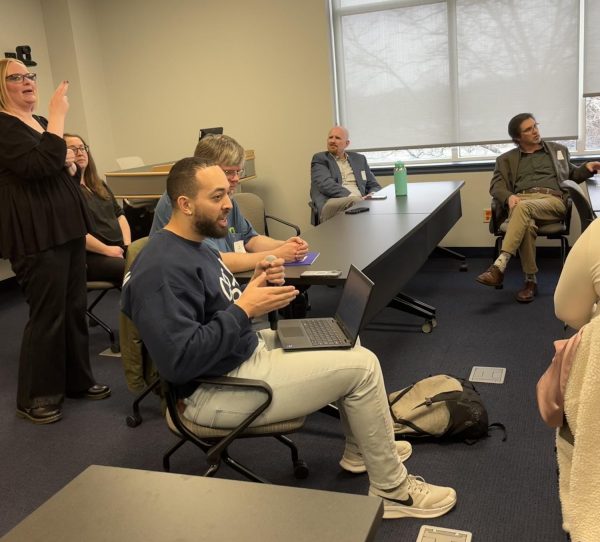
A share-out among attendees relayed their desire to reevaluate Harper’s HEAT reporting procedures with an abolitionist approach, to have proactive rather than reactive approaches to serving students across different communities, and foster relationships between employees and students that encourage wholeness and grace-giving.
Pride club member, Zale Holmes, touched on the purpose of their workshop during the disability symposium.
“We hope that people take what they’ve learned from our presentation and incorporate that into their politics and into their future decision making because disability is a really important part of our society,” Holmes said.
Neurodiversity Statement Workshop
Dr. Brian Cremins hosted a workshop for attendees to give their input on the college’s first ever neurodiversity statement.
As of March 7th, a draft of the statement read:
“At Harper College, we recognize the unique abilities and perspectives that neurodiverse individuals bring to our community. We are committed to fostering an inclusive environment where all students, faculty, and staff can succeed and thrive. Neurodiversity is embraced as an asset, and collaboration amongst differences leads to heightened innovation and enriches the growth of our community. We aim to remove barriers and provide accommodations and support services to ensure that our neurodiverse community members cna fully participate in all aspects of campus life. Committed to _____ and _____, Harper College is proud to be an institution that genuinely celebrates and supports neurodiversity.”
Commitment suggestions from attendees included themes of “breaking down stigma” and “collaborative growth.”
According to Dr. Cremins, the statement is to be finished by the end of the Spring 2025 semester, and moved through the college’s shared governance system.
Teaching/Learning Through a Neurodivergent Lens
LEAD (Leveraging Equity in Academia through Diversity) faculty fellows Nicole Mancha and Amaziah Finley gave insight to how educators can help all students succeed by creating an inclusive and friendly learning environment.
Some strategies mentioned were availability of assistive technology and accessibility tools in the classroom, normalization of self-regulated strategies such as different note-taking styles and fidgets, and inclusion of visual, auditory, and kinesthetic modes of instruction.
Furthermore, they revealed that 77% of educators do not disclose their neurodivergence, meanwhile, about 10-30% of students identify as neurodivergent.
Harper College Transition Autism Program (TAP) Student Panel
Five students part of Harper’s Transition Autism Program (TAP) spoke about their experiences being neurodiverse and navigating college.
During this session, attendees were made aware that come Fall 2025, TAP and ACES (Academic Coaches Empowering Students) will now be known as the Infinity Initiative for Neurodiverse Students (IINS).
According to Harper’s webpage, IINS is designed to support neurodiverse students in their transition from high school to college, and work towards completion of a degree or certificate at Harper.
At the event, TAP students shared the general sentiment that the world, especially as young kids, can be unkind and not understanding of different people. However, many have found the TAP program to enrich their lives with new experiences, and that it has encouraged them to find and follow their passions.
Student Luis Medina shared that because of the program, he wants to pursue a career as a special education teacher.
“I want to be a positive role model [for] students with disabilities,” Medina said.
Intersectionality in Neurodiversity: Systemic Factors Shaping Educational Experiences in Higher Education
Harper College student and founder of The Prideful Path Project, Corvin Keirn-Whiting, gave a presentation on the intersection of identity and neurodiversity.
They encouraged attendees to take action to support neurodiverse peers and improve upon Harper’s general inclusivity.
For Professor Alessandra McNamara, this message stuck with her.
“This presentation was really meaningful for me. I teach in the nursing department, and I teach mental health nursing specifically. So I educate students about signs and symptoms of autism and other mental health conditions that fall under the neurodiversity umbrella. So I think the big takeaway for me is just little things that I could say in addition to what I already do, to be more accommodating to my students and make them feel more welcomed,” McNamara said.
For information regarding upcoming events, check out the Harper Events page. Make sure to follow and stay posted on Harbinger’s Instagram, Harbstudentnews.


